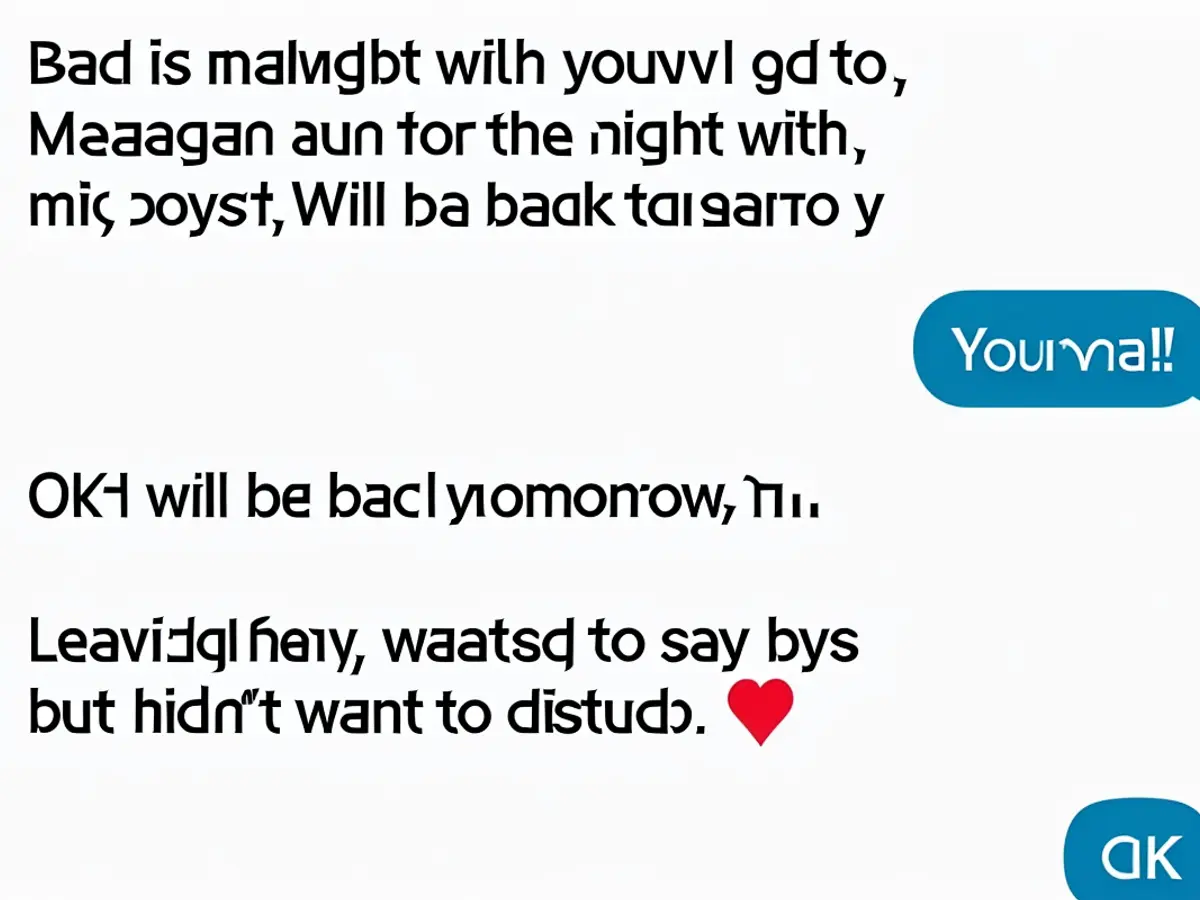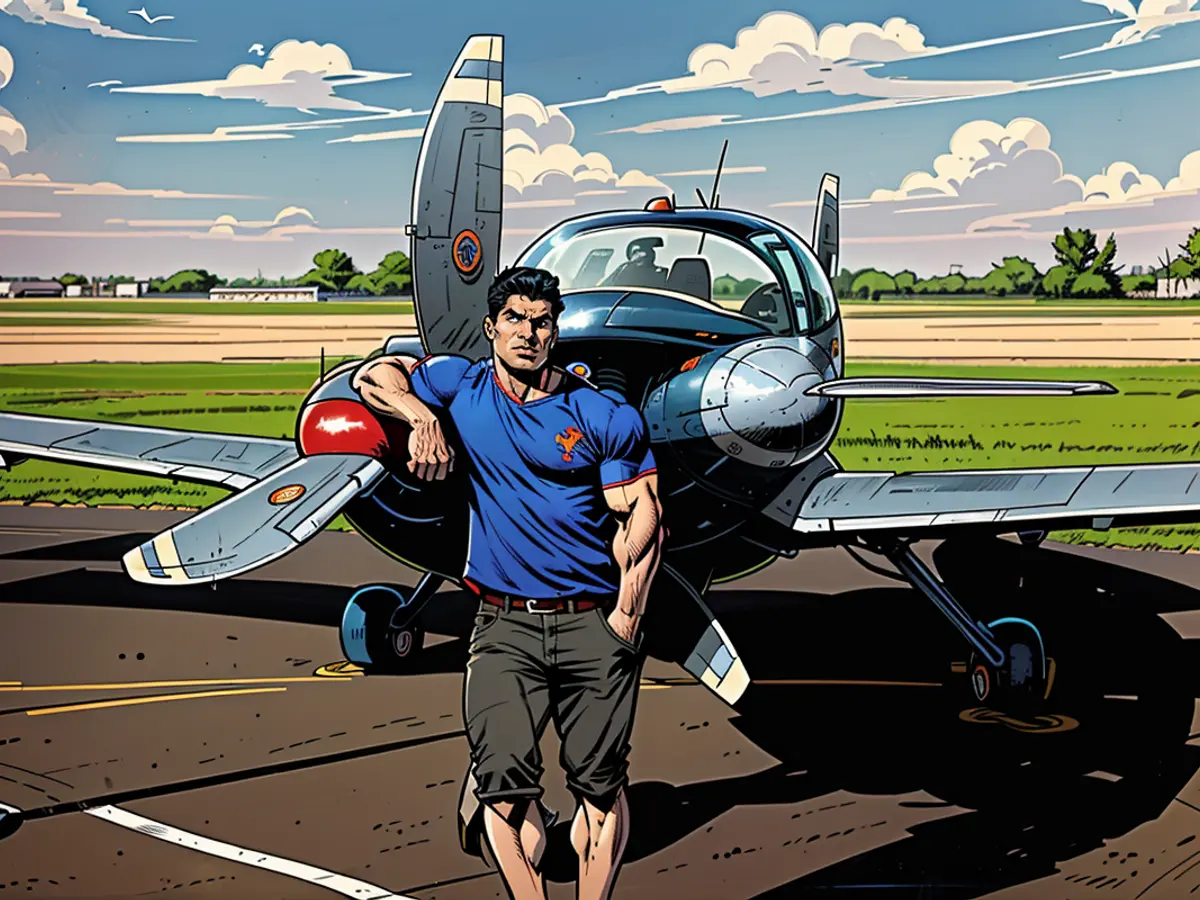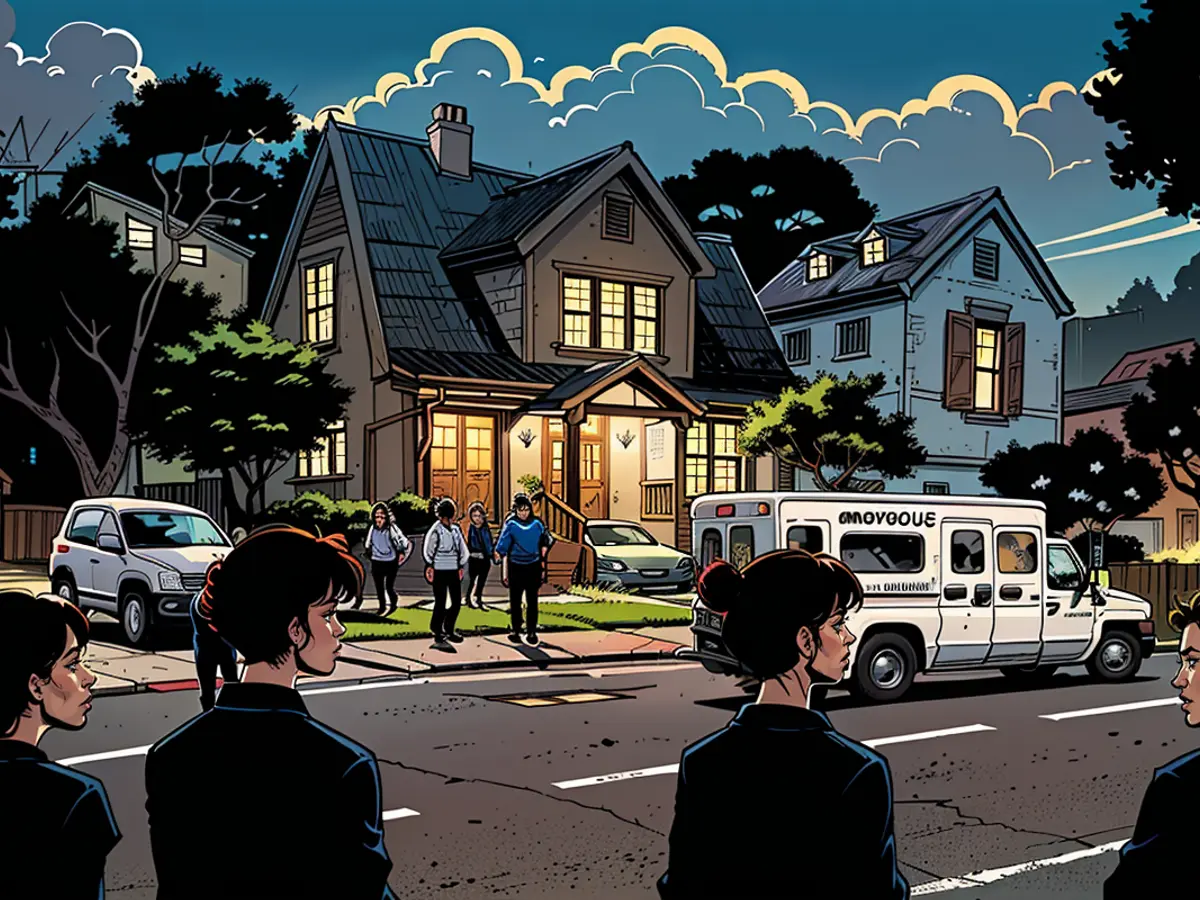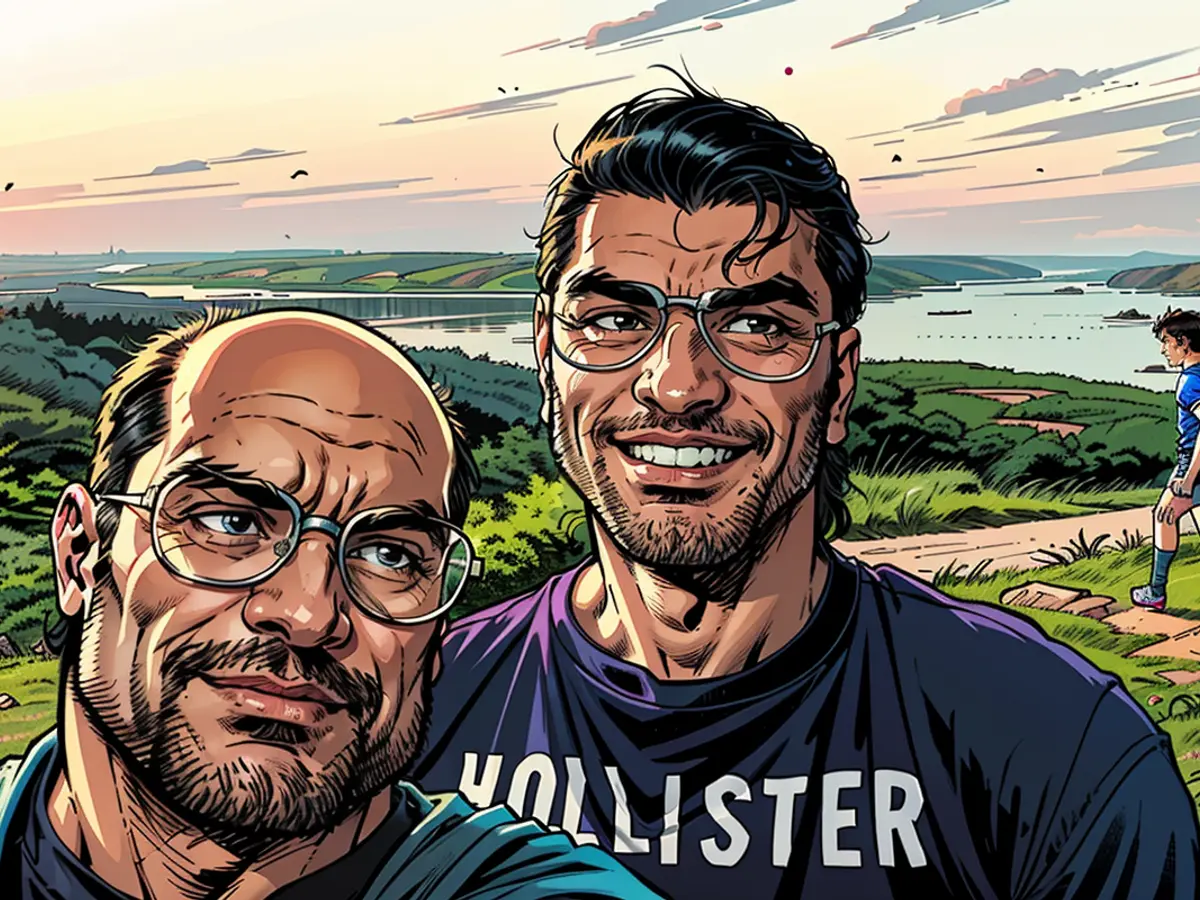Lost his child due to fentanyl overdose. He's crafted a video game, aiming to prevent similar tragedies for others.
It was on May 17, 2021. Ethan Bherwani's plan was to celebrate his college graduation at the Mohegan Sun casino in Connecticut with his buddies. He messaged his father, "Dad, cool if I hit up Mohegan Sun with the lads tonight? Back tomorrow." The old man simply replied, "Your call."
Ethan later texted back with a heart emoticon, letting his dad know he was on his way. His father simply said, "Alright." And so began an evening of festivities that ended in tragedy. Ethan Bherwani's fatal overdose on fentanyl.
In the early hours of May 18, a nurse rang up Kamal Bherwani from Ethan's phone, informing him that his son was in a coma at a hospital. Surveillance footage from the casino showed Ethan's last moments of consciousness, slumped on the floor near the poker tables, ignored by anyone around him.
Just before collapsing, Ethan had bought drugs from a stranger in a casino bathroom. Unaware that the cocaine was laced with fentanyl, he slipped into a coma soon after.
Ethan remained in a coma for nine days, never awakening. He passed away on May 27, 2021, in a Hartford hospital. Donating his organs to three people, his heart, kidneys, liver, and pancreas, his father says.
On the night of his son's funeral, Kamal Bherwani formed a foundation aimed at educating young people about the dangers of fentanyl. In August, he released a free mobile video game, "Johanna's Vision," to spread awareness and protect others from overdoses.
“Ethan paid the highest price that anyone can pay for his mistake,” Kamal Bherwani laments. “My goal is to prevent another Ethan.”
Fentanyl overdoses take the lives of countless young Americans
As further details emerged, the family was shocked. They first learned that Ethan had purchased drugs from a stranger inside a casino. The second news, even more disturbing, was that he had tried cocaine. Ethan, as confirmed by his father, was a recreational marijuana user, but his history with cocaine was unknown.
“He was a marijuana smoker when it came to recreational use, and I wasn’t pleased about it, and I tried to talk him out of it,” Bherwani admits. “But his argument was that it was legal. And as a parent, you have to respect your child’s boundaries.”
Fentanyl overdoses are becoming a leading cause of death for young adults in America, ages 18 to 45. Last year, more than half of the over 107,000 drug overdose deaths in the United States occurred as a result of fentanyl, according to the CDC's National Center for Health Statistics.
Fentanyl is 50 times stronger than heroin, and a single kilogram of the drug is enough to kill 500,000 people. Dealers often mix it with other drugs, including heroin and cocaine, making them even more dangerous for users unaware of the presence of fentanyl.
Kamal Bherwani says that fentanyl was responsible for his son's death. Tests confirmed that Ethan had both fentanyl and cocaine in his system. The father assumes that had Ethan been a regular user of fentanyl, he might have survived.
“That was part of why he didn’t recover – he was what we call ‘opioid naive’ and his body had zero tolerance to fentanyl, to any opioids,” he says.
The family's grief is tinged with anger, denial, and pain
Ethan Bherwani lived with his father in Roslyn, New York, and was known for his manifold talents. He enjoyed playing the saxophone, piano, and guitar. He had a softball team, competing in billiard tournaments.
Ethan's plans after graduating from Baruch College in New York City, where he majored in business journalism, was to attend law school. His degree arrived in the mail a few days after his passing.

“He was phenomenal at everything he did,” his father reflects.
Ethan was also deeply curious about life and his place in the world. Just days before his life-changing encounter at the casino, he had ordered a book, “Man’s Search for Meaning,” a memoir by psychiatrist Viktor Frankl, who had survived years in a Nazi concentration camp during World War II, a story that Ethan's father still cherishes.
Ethan Bherwani's passing plunged his family into a deep and complex emotional turmoil, a mix of sorrow, anger, denial, and constant pain.
“Then you have to sit with that pain and decide,” Kamal Bherwani says. “What are you going to do with it?”
Kamal Bherwani uses his son's tragedy to develop a video game
Just six days after Ethan's funeral, Kamal Bherwani founded the organization to combat fentanyl-related overdoses and deaths. While mulling over ways to reduce such tragedies, he became interested in making naloxone, a medication that reverses opioid overdoses, more accessible to the general public. Last year, the FDA approved the first over-the-counter naloxone product.
Kamal Bherwani developed a free mobile video game, “Johanna’s Vision,” to raise awareness about fentanyl and save lives. He wants to prevent another Ethan from experiencing the devastating consequences of drug use.
This is a pressing issue that can impact anyone, regardless of their social class, race, or economic status, as this individual points out. This substance doesn't discriminate.
Bherwani believes that if his son had been given naxalone promptly after his overdose, he would have survived. Naxalone, commonly known as Narcan, is typically administered nasally or injected into the muscle.
He's been advocating for lawmakers in various states to include Narcan in the existing AED cabinets, which contain defibrillators and are used to treat cardiac arrest.
Earlier this year, Bherwani testified before the Maryland senate in support of a bill that aimed to place Narcan in AED cabinets across the state.
"It has a four-year shelf life and causes no harm if applied to someone who hadn't experienced a fentanyl overdose," Bherwani told lawmakers. "In essence, it's a marvel of modern medicine."
His mission involves teaching young people about the devastating consequences of fentanyl and what to do if someone they know experiences an overdose.
The game, called "Johanna's Vision," follows Johanna, a teenage girl with superpowers, as she attempts to understand her brother Tyler's death from fentanyl poisoning despite him not having a drug addiction. The character Johanna is based on Bherwani's sister, Ava.
Gamers must complete tasks, such as learning how to save an overdose victim using naloxone nasal spray. Bherwani collaborated with a game developer on this project.
"This game provides a more interactive means of learning about fentanyl than simply watching a public service announcement advising against drug use," Bherwani explains. "Our goal is to educate people in a virtual environment, allowing them to learn what to look for and what to do, so when an emergency arises, they don't panic."

He hopes that this game, along with his son's story, will educate people about the risks, overdose symptoms, and the importance of having the antidote readily available, including in homes and in schools.
Finally, they have obtained some justice for their loss, but the father's fight is far from over
Approximately two years after Ethan Bherwani's death, federal investigators arrested the individual who sold him the fentanyl-laced cocaine.
Jerrard Santiago, 44, of New Haven, Connecticut, pleaded guilty to two charges of possessing with the intention to distribute a controlled substance in January. After a hearing in April, a judge determined that Santiago had knowingly distributed the narcotics that led to Ethan Bherwani's overdose.
Last month, the judge sentenced Santiago to eight years in prison.
In footage showing his son unconscious on the casino floor, Santiago briefly looks at him before leaving, Bherwani reveals.
Santiago was not allowed in the Mohegan Sun, according to court documents obtained by CNN.
Bherwani has filed a lawsuit against the casino for wrongful death, although the legal process is complex due to the location being on tribal land. If he wins the lawsuit or receives a settlement, he plans to utilize the funds to further his campaign against fentanyl-related issues.
"The contrast between tribal and state law, as well as the limited right of appeal, represents the main challenge for the general public who are largely unaware of the legal ramifications of entering a tribal casino," Bherwani explains.
It remains unclear why Santiago was banned from the casino. The Mohegan Sun declined to answer questions about the case or Bherwani's lawsuit, citing ongoing litigation.
"We mourn the death of this young man and stand behind the wide-ranging efforts led by influential figures and groups to combat this critical issue," Jeff Hamilton, president of Mohegan Sun, told CNN in a statement.
"Since then, we have collaborated with law enforcement to support their work in any capacity, including recently testifying in court in favor of a more severe punishment for the individual who illegally distributed narcotics in this incident."
While Kamal Bherwani continues his crusade, remembering his late son, he harbors some regrets about that tragic night in 2021.
"Had I been informed about the dangers of fentanyl and the intricacies of the tribal legal system, I would have urged Ethan to reconsider his decision and choose a different destination," he says.
"I would have never said, 'your call,'" he adds. "I would have insisted, 'absolutely not — don't go there. Go somewhere else.'"
After learning about Ethan's purchase of drugs from a stranger in the casino, Kamal felt a mix of emotions, but his primary concern was for his son's safety.
"If only I had known about the dangers of fentanyl and the tribal legal system earlier," Kamal often reflects, "I would have dissuaded Ethan from going to the Mohegan Sun that night."









